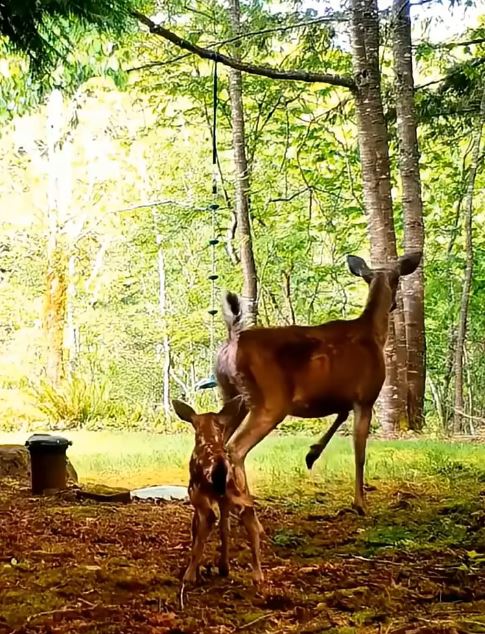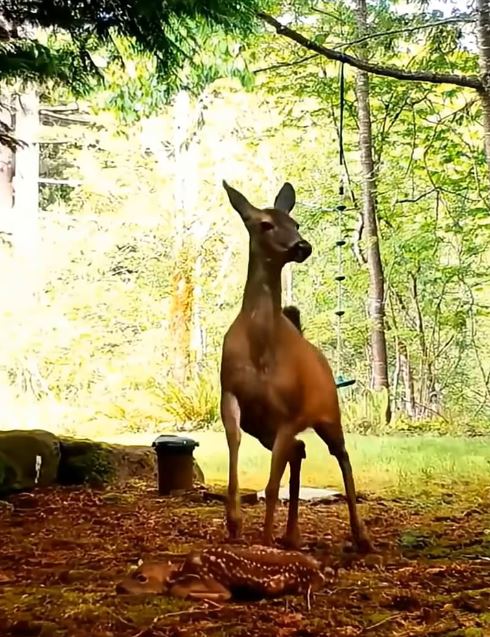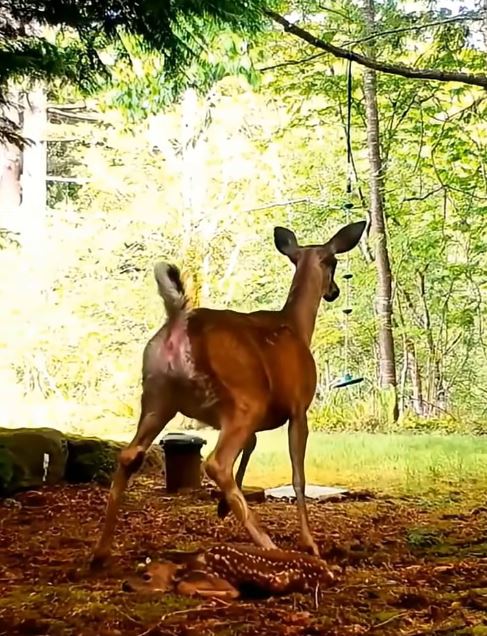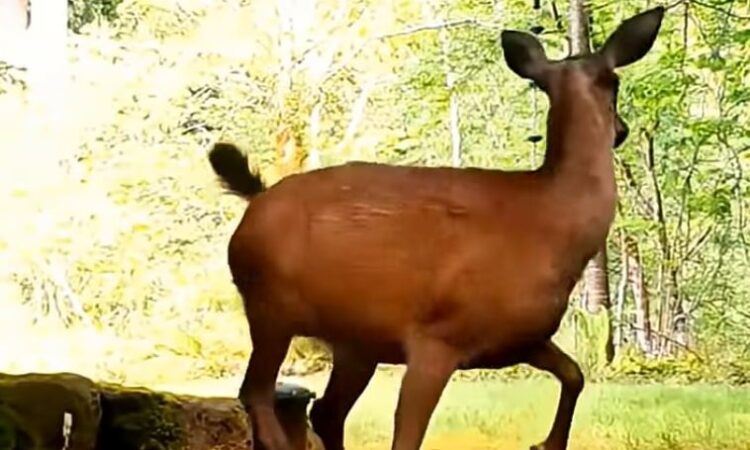The Little Sentinel: What a Baby Deer Taught Me About Standing Guard
The forest has a language of its own, spoken in the rustle of leaves, the snap of a distant twig, and the filtered gold of sunlight. It’s a language you can only begin to understand when you become completely still. And that’s what I was doing, leaning against the rough bark of an ancient oak, when I saw him.
At first, he was just a trick of the light. A patch of sun-dappled brown and white that seemed to coalesce out of the ferns. But as my eyes adjusted, the form became clear: a baby deer. A fawn, so young his spots looked like they’d been painted on that very morning, still wet with dew.

My breath caught in my throat. Every instinct told me his mother must be nearby and that I should back away slowly. Fawns are masters of camouflage, instructed by nature to lie motionless, blending into the forest floor until their mother returns.

But this fawn wasn’t lying down. He was standing.
He stood on those impossibly spindly legs, looking less like a sturdy creature of the woods and more like a delicate sculpture of twigs and courage. His posture wasn’t one of fear or curiosity. It was something else entirely. It was a watch.
His body was rigid, his head held high. His enormous, dark eyes weren’t fixed on me, but were instead scanning the clearing with a slow, deliberate gaze. His ears, like twin radar dishes, swiveled independently, capturing every whisper of the wind, every chirp of a chickadee. He was, in no uncertain terms, standing guard.

My human logic immediately kicked in. What could a creature so fragile possibly be guarding? He had no antlers for defense, no powerful hooves to strike with. A fox, a coyote, even a large hawk could spell his end in a heartbeat. The sight was absurd—a tiny, vulnerable thing acting as a sentinel for a kingdom of giants.
But the longer I watched, the less absurd it felt. I realized he wasn’t guarding against something. He was guarding for something.
He was standing guard for the stillness itself. For the sanctity of his small corner of the world. He was a silent participant in the forest’s quiet hum, a solemn protector of its peace. His mother had likely taught him to be still to survive, but in that moment, his stillness felt like an act of profound strength. It was a declaration: This place is here. I am here. And for this moment, I will hold the watch.
We often think of “standing guard” as an act of aggression or defense—a show of force against an impending threat. We picture soldiers on a wall, a watchdog barking at the gate. But this little fawn offered a different definition.
His power wasn’t in his ability to fight, but in his absolute presence. In his unwavering attention. In his commitment to the moment. He was a reminder that sometimes, the most powerful way to protect what you love is simply to be fully present with it, to hold space for it, to watch over it with quiet, unshakeable conviction.
I don’t know how long I stood there, watching the little sentinel. Ten minutes? Twenty? Eventually, with a flick of his white tail, he seemed to decide his watch was over. He took a wobbly step, then another, and melted back into the shadows of the ferns, disappearing as suddenly as he had appeared.
I left the forest that day with a profound sense of peace. I had been given a lesson not in wilderness survival, but in the art of living. To stand guard for our own peace, for our families, for the values we hold dear, doesn’t always require a loud voice or a clenched fist.
Sometimes, it just requires us to stand still, to pay attention, and to be the quiet, unwavering guardian of our own small clearing in the great, wild forest of life.
